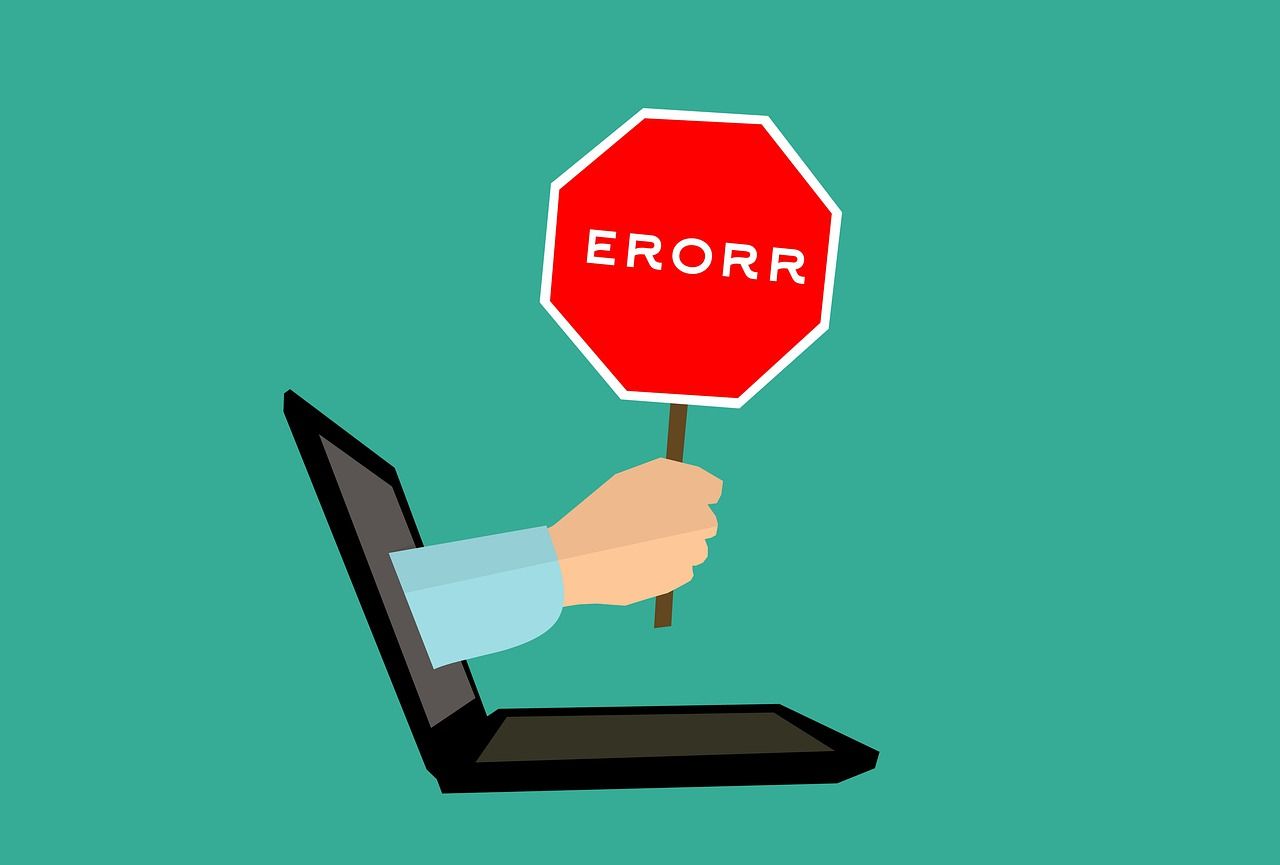Global Error Handling in Angular

Error handling is how we deal with errors that go wrong when we are running a program. There is no code that runs perfectly forever :) Things can go wrong and your application might crash. So, in order to run your program smoothly you must handle errors. It is just not for keeping your application in a running state. It is also useful to show messages about the error to the client. Like what went wrong, why it is not allowed to access this page etc.
How to handle errors
- First of all, you have to catch them 😀. You can catch them via try-catch block. See an example;
Create an basic error
({} as any).doSomething()

Handle it
try {
({} as any).doSomething();
} catch (error) {
this.toastService.showError(error.message);
}

- See, we catch the error and handle it.
- In this case, we know where the error will be thrown. Most of the time we won't know where the error will appear. Should we cover the entire application with try-catch blocks? Of course not 😀
- We are going to handle errors globally. Angular provides a great way to do it. Let's do it step by step;
1.Create a service and implement the ErrorHandler interface.
import { ErrorHandler, Injectable, inject } from '@angular/core';
import { ToastService } from './toast.service';
@Injectable({
providedIn: 'root'
})
export class CustomErrorHandlerService implements ErrorHandler {
toastService = inject(ToastService);
//This method comes from interface
handleError(error: any): void {
this.toastService.showError(error.message);
}
}
2.Provide the service by using the ErrorHandler class from @angular/core.
import { ErrorHandler } from '@angular/core';
providers: [
{ provide: ErrorHandler, useExisting: CustomErrorHandlerService }
]

- It behaves exactly the same. Nice, now we catch the entire errors in one simple service.
- Is it that simple? I wish it is but it's not 😀. This handling mechanism only works synchronously. When we start making http requests, our
CustomErrorHandlerServicewon't catch the errors.
How to handle HTTP Requests
Make an HTTP request and check if it's working.

As you can see it doesn’t work. So how can we catch the http errors? with catchError() operator in rxjs or observer object. I will go with catchError() operator.
getTodo(id: number) {
this.http
.get(`https://jsonplaceholder.typicode.com/todos/${id}`)
.pipe(catchError((err) => {
this.toastService.showError(err.message);
return EMPTY;
})
)
.subscribe(todo => this.todo = todo);
}

- So are we going to add this
catchError()operator to the entire http requests? NO, we will use HTTP Interceptors! - Let's do it step by step.
1.Remove catchError pipe
getTodo(id: number) {
this.http.get('https://jsonplaceholder.typicode.com/todos/${id}').subscribe(todo => this.todo = todo);
}
2.Create an HTTP Interceptor
import { Injectable, inject } from '@angular/core';
import { HttpHandler, HttpInterceptor, HttpRequest } from '@angular/common/http';
import { EMPTY, catchError } from 'rxjs';
import { ToastService } from './toast.service';
@Injectable({
providedIn: 'root'
})
export class ToastInterceptor implements HttpInterceptor {
toastService = inject(ToastService);
intercept(req: HttpRequest<any>, next: HttpHandler) {
return next.handle(req).pipe(catchError((error) => {
this.toastService.showError(error.message);
return EMPTY;
}));
}
}
3.Provide the interceptor
import { HTTP_INTERCEPTORS} from '@angular/common/http';
providers: [
{ provide: HTTP_INTERCEPTORS, useExisting: ToastInterceptor, multi: true }
]
Now everything has set up. Let's make an HTTP request and try again.

- So, now we are handling http errors globally. Whenever an error occurs, it will be catched from interceptor and will be showed via toast message.
- But this method has a one little disadvantage. What if we dont want to show toast message for a spesific case? related issue about this problem.
- ABP Framework has great solution for this problem. Let's understand the solution and apply it straightforwardly.
- Create a singleton service called
HttpErrorReporterService. This service is going to store HttpError in a subject, and share the httpError as an observable for subscribers. - Create a new service called
RestServicewhich is a layer on top ofHttpClient, this new service is able to get a skipHandleError parameter. If skipHandleError value is false then it will be reported to theHttpErrorReporterServiceotherwise error will be throwed. - Create a service called
ErrorHandler, This service is going to subscribe to observable inHttpErrorReporterServiceand handle the errors (in our case we will show toast message).
- Create a singleton service called
- When i first see this solution, i loved it. For more information and detail you can check the source code from the links below;
You can copy the source codes from ABP or use ABP directly 😀
Lets simulate the solution in our application, this simulation is not suitable for your application it just for demonstration.
Rest Service
import { HttpClient, HttpRequest } from '@angular/common/http';
import { Injectable, inject } from '@angular/core';
import { HttpErrorReporterService } from './http-error-reporter.service';
import { catchError, throwError } from 'rxjs';
@Injectable({
providedIn: 'root'
})
export class RestService {
http = inject(HttpClient);
httpErrorReporterService = inject(HttpErrorReporterService);
request(req: HttpRequest<any> | { method: string, url: string; }, skipHandleError = false) {
const { method, url } = req;
return this.http.request(method, url).pipe(catchError((err) => {
if (!skipHandleError) {
this.httpErrorReporterService.reportError(err);
}
return throwError(() => err);
}));
}
}
HttpErrorReporterService
import { HttpErrorResponse } from '@angular/common/http';
import { Injectable } from '@angular/core';
import { Subject } from 'rxjs';
@Injectable({
providedIn: 'root'
})
export class HttpErrorReporterService {
private _error$ = new Subject<HttpErrorResponse>();
get error$() {
return this._error$.asObservable();
}
reportError(error: HttpErrorResponse) {
this._error$.next(error);
}
}
ErrorHandler
import { Injectable, inject } from '@angular/core';
import { HttpErrorReporterService } from './http-error-reporter.service';
import { ToastService } from './toast.service';
@Injectable({
providedIn: 'root'
})
export class ErrorHandlerService {
httpErrorReporterService = inject(HttpErrorReporterService);
toastMessageService = inject(ToastService);
constructor(){
this.httpErrorReporterService.error$.subscribe((error) => {
this.toastMessageService.showError(error.message);
});
}
}
Now lets make an http request to check is it working
restService = inject(RestService);
getTodo() {
this.restService.request(
{ method: 'GET', url: 'https://jsonplaceholder.typicode.com/todos/1111' },
).subscribe(todo => {
this.todo = todo;
});
}

Now let's pass true to the skipHandleError parameter, let's see if the errorHandler going to skip this error or not.
restService = inject(RestService);
getTodo() {
this.restService.request(
{ method: 'GET', url: '<https://jsonplaceholder.typicode.com/todos/1111>' },
skipHandleError: true,
).subscribe(todo => {
this.todo = todo;
});
}

Conclusion
- To handle synchronous errors globally, you can use Error Handler.
- To handle http errors globally, you can use HTTP - interceptor. But in this method, you won't be able to skip specific cases. I recommend you use the ABP Framework's solution.
Thanks for reading, if you have any advice please share it with me in the comments.






























































Comments
No one has commented yet, be the first to comment!